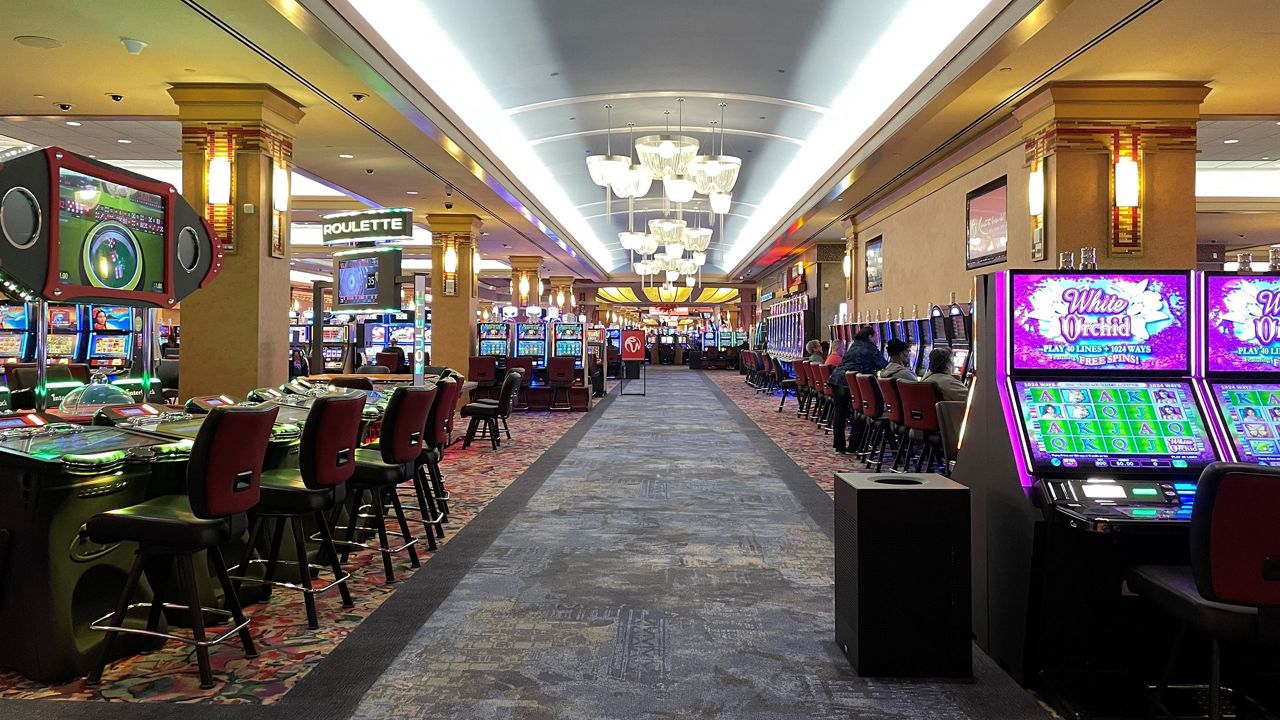The Cultural Impact of Casino Activities Across the Globe
Gambling games have long been a fascinating form of entertainment, drawing numerous of players from different cultures around the globe. From the lively casinos of Las Vegas to the thriving gambling halls of Macau, these games serve as a common thread that brings together people across a variety of backgrounds. The allure of fortune, strategy, and risk entices not only those hoping to strike it rich but also those seeking a sense of community.
The significance of casino games extends well beyond the gaming floor. They often reflect the social norms and beliefs of the societies in which they prosper. Games such as poker, pontoon, and the wheel game have integrated into the mosaic of cultural phenomena, influencing various aspects from movies to clothing. As we explore this fascinating intersection of luck and life, we can better understand how casino games shape and are influenced by the world around us. 78win đăng nhập
Historical Evolution of Casino Games
The roots of gambling activities can be tracked back to historical cultures, where gambling in different forms was extensively practiced. In the East, around 2300 BC, a form of gambling known as Keno was common, while in old Rome, soldiers would often bet on the outcomes of their matches. The concept of using randomness for entertainment and profit evolved over the years, leading to the creation of more structured activities. By the late Middle Ages, betting houses started to emerge in the continent, notably in Italy, which introduced early incarnations of well-liked games still played today.
As betting increased popularity in Europe, the 17th and 18th centuries saw the rise of gaming houses as dedicated locations for betting. The initial official gaming venue, the Ridotto, was set up in the Venetian city in the year 1638, offering activities like Baccarat games and the game Faro. This period marked a significant turning point, as casinos started to draw not just the high society but also the expanding middle-tier society. The refinement of activities increased, leading to the introduction of new guidelines and modifications that enhanced the play experience.
In the 19th century, the industrial age and changes in social norms additionally changed the landscape of gaming games. The arrival of the game of roulette and new gaming machines drew a broader audience, and gambling establishments became seen as legitimate forms of entertainment. This era witnessed the international spread of casino activities, as casinos spread from the continent to the New World, culminating in the creation of the iconic Las Vegas Strip in the 1900s. The evolution of casino games has progressed into the current era, incorporating technology and digital platforms, rendering them open to a universal population.
# Cultural Significance across Various Cultures
Gambling games have deep-rooted cultural and social significance across many cultures across the globe. In Las Vegas, the very essence of the city is woven around gaming venues, where gaming is not just a recreational activity but a fundamental aspect of entertainment and social interaction. The dazzling lights and vibrant atmosphere attract a vast audience, showcasing how games of chance can influence local financial landscapes and cultural uniqueness. This surrounding transforms the notion of recreation into an enriching encounter that affects fashion, sound, and even film.
On the other hand, some cultures approach gambling with more caution, viewing it through the lens of ethical considerations and tradition. For instance, in various Oriental cultures, games like Mahjong and Pai Gow are steeped in history and carry significant social relevance. These games are often played during get-togethers and festivities, fostering social ties and strengthening family ties. The act of participating in these games goes beyond mere entertainment, reflecting ethics such as respect for elders and the value of shared enjoyment.
Simultaneously, in European countries such as the principality of Monaco and Italy, gambling activities serve as symbols of opulence and refinement. The elegant atmosphere of these establishments attracts both tourists and residents, maintaining a sense of prestige and elitism. The art of the game of poker and the strategic features of games like baccarat are esteemed, influencing community relationships and cultivating an attraction that fascinates a heterogeneous audience. This highlights how games of chance can both mirror and shape cultural perspectives towards danger, benefit, and social interaction.
Financial Influence and Tourism
Casino games play a crucial role in the economic landscape of many regions, particularly those that depend significantly on tourism. The revenue generated from casino operations fuels local financial systems, creating employment opportunities not only within the casinos but also but also in connected industries such as hospitality, dining, and recreation. This influx of tourists, drawn by the allure of games and the overall casino experience, stimulates spending across multiple local enterprises, contributing to the economic vitality of the region.
The presence of casinos often leads to the construction of infrastructure, including hotels, transportation systems, and leisure amenities. These improvements are essential in improving the overall tourist experience, making locations more appealing to tourists. Additionally, many casinos invest in local communities through support of activities and charitable activities, further integrating themselves into the social fabric of the region. Such investment not only supports economic growth but also fosters a positive reputation of the gambling sector. https://78win.wiki/
Furthermore, the worldwide appeal of casino games drives tourism competition, with locations vying to attract players from across the globe. Iconic locations like Las Vegas and Macau have become synonymous with gambling culture, drawing millions annually. This competitive edge encourages creativity and variety within the gambling sector, influencing developments in leisure and accommodation that extend beyond their borders. The consequences of this visitor influx extend wide, impacting local financial health and cultural interactions on a global scale.

